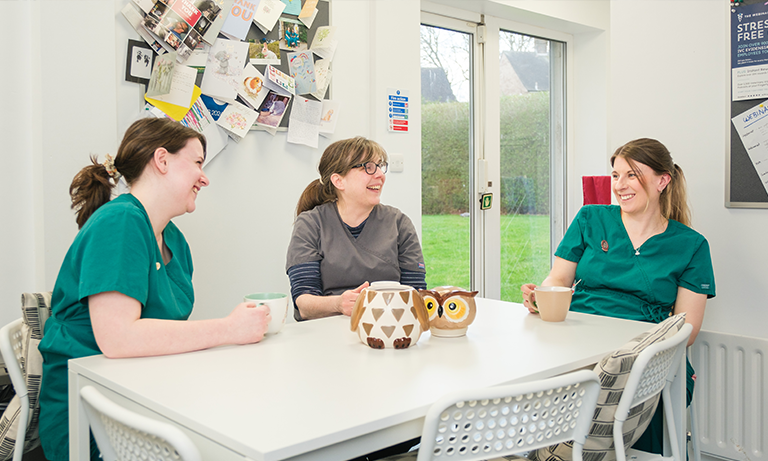The veterinary voice for animal welfare: reflecting on BVA’s updated Animal Welfare Strategy
11 Jul 2025
15 May 2025 | Fatima Kamara
Mental health is something we all have — not just those living with depression, anxiety, or a mental illness. Bupa Mental Health Nurse Fatima Kamara explains why caring for your mental wellbeing is just as important as looking after your physical health.

What is mental health?
Mental health covers everything to do with your emotions, and how you think and feel. Think of mental health as being on a scale. Good mental health is at one end and having a mental illness is at the other. We call this a 'mental health continuum'.
Having good mental health doesn't mean you're always happy - everyone has good and bad days. It just means that you're able to cope well with normal day-to-day stresses and challenges.
Between the two extremes, your mental health may impact how well you're feeling or coping to different degrees. Everyone may be at different points on this scale at different times. And you can move up and down the scale all the time.
Signs of mental health problems
The signs that your mental health isn't doing so well will be unique to you. Perhaps you're having more trouble sleeping that usual. You might find your thoughts or feelings are getting harder to deal with.
You may be also going through a period of feeling sad, hopeless, or fearful. You may feel worries, tense, or afraid (a common experience called anxiety) in a way that doesn't feel normal for you.
Mental health problems often have physical symptoms too. You might find you've lost your appetite or you're feeling tired all the time.
Being aware of your mental health and what's normal for you means you're more likely to recognise these signs early on. And, this means you can take steps to feel better.
Taking care of your mental health
Just like physical health, mental health is something you need to continue to work at.
Practising good mental health habits can help you maintain your mental health. That's important even if you're currently feeling ok.
Here are some ways to look after your day-to-day mental health:
It's also important to recognise that you might not always be able to handle things on your own. It's ok to ask for help - even if you're not sure whether you need it.
Where to get help
There are many ways to seek support. You may find some options are more easily available or work better for you. Here are some of the main ones.
If you're not sure where to turn, it can also help to talk to a trusted friend or loved one. They may be able to encourage and support you in finding the help you need.
Find free information, advice, and resources of support on Bupa's Mental Health Hub.
Get tailored news in your inbox and online, plus access to our journals, resources and support services, join the BVA.
Join Us Today